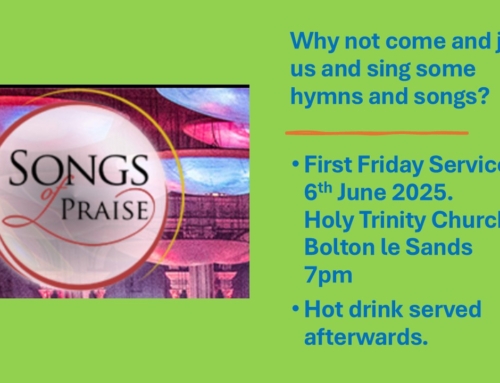
From the Gospel according to John
Jesus said to the crowds:
“Everything that the Father gives me will come to me,
and I will not reject anyone who comes to me,
because I came down from heaven not to do my own will
but the will of the one who sent me.
And this is the will of the one who sent me,
that I should not lose anything of what he gave me,
but that I should raise it on the last day.
For this is the will of my Father,
that everyone who sees the Son and believes in him
may have eternal life,
and I shall raise him on the last day”. (Jn. 6:37-40)
The will of God
The revolutionary message is that whoever “sees the Son and believes in him…I shall raise him on the last day”. We know from experience that the body decays. But the body is not the only part of the human person! The human being is a person and partner in dialogue with God. And He will not forget on, He will not renege on His promise, because God is faithful to His promises. God has written each one of us on the palm of His hand and will not forget anyone, because He is a Father. This is the heart of the message that Jesus left us. Because of this truth, Jesus became man, he died on the cross and rose to make us participants in the joy of the resurrection: “Grant them, O Lord, we pray, and all who sleep in Christ, a place of refreshment, light and peace”, we pray during the I Eucharistic Canon of the Mass, at the moment when we remember the deceased.
Allowing ourselves to be taken by surprise
That we will survive is a sure thing, Jesus told us this! How this will happen, we do not know. We can hypothesize about it by listening to the Word of the Gospel. The hope remains, however, of being surprised by God’s goodness, by His mercy. We have our own parameters by which to measure what happens in life, but we must allow God to have His own parameters which are not ours. This is exactly what will surprise us once we cross the threshold of heaven.
A step ahead
Death is not an annihilation, but of living in a new way. It is knowing that those who have preceded us are a “step ahead” of us on the path of life. They have reached the top, while we still find ourselves on the path of life. They have turned the corner, while we are still on the straight and narrow. Death, therefore, is not the end of everything, but the beginning of a new life for which we are and have been preparing ourselves for quite some time. Commemorating the dead, then, is not only a “remembrance” of those who are no longer present, but a bridge that awaits us at the end of our lives and that will lead us to the other shore to which we are all destined. It’s a help so we do not let ourselves drown when life is overwhelming, forgetting that everything passes, while only God remains.
Sister death
After having reconciled himself with God, with himself and with creation, Saint Francis of Assisi, toward the end of his life, was able to reconcile himself with death to the point that he was able to call her his “sister”. This symbolizes that even he understood that death is a mystery to embrace. Unlike today’s culture that tries to deny death in every way through the illusion that we are eternal, Saint Francis teaches to look on it, to understand it and to consider it as a “sister”, as part of us. After all, death is just as real as the fact that we exist. This is a step toward intellectual honesty, even more so than a spiritual movement. Fear of “sister death” is certainly dictated by fear of the unknown, of not knowing what lies beyond the “veil”. This creates a certain discomfort. Secondly, let’s not deny it, we fear the “weight” of our actions at the end of our lives when everyone is a believer. We will all ask ourselves then how we have lived our lives. This experience leads us to pray for those who have gone before us, almost as if we still want to help and protect them, as well as asking for their help and protection.
One thing is certain: we need to understand death in the light of Jesus’ resurrection. This is where our strength and serenity come from. He opened the Way that leads through Truth to Life. Jesus Himself reminded us that have been made for eternity. A thousand years are as a day gone by for God. A lifetime is extremely brief, fleeting. It has no sense if it is not directed toward an experience that is truer. As Jesus Himself reminded us: “everyone who sees the Son and believes in him has eternal life”.
One last thing. Jesus became man to help us live “for God”. He died, was buried and descended to the dead so that no one might feel excluded from His salvific work. Jesus Himself chose to “dwell in” every place, even the most infamous, to keep me company in every moment so that I might not be afraid or feel alone and abandoned at the mercy of my fear. There is “nowhere” in life or in death that He has not already “visited”. This is what gives me the certainty that He will welcome me with open arms in whatever situation I “fall into”: whether today when I fall into sin, whether tomorrow when I fall into death, He is there. For He has conquered sin and death and has prepared a place for me in His Father’s House. This is enough for me to journey on with trust and hope along the path of life. “Even though I should walk through the valley of death” (Ps 23), He is there. He is with me.
(Courtesy of Vatican News: www.vaticannews.va)







